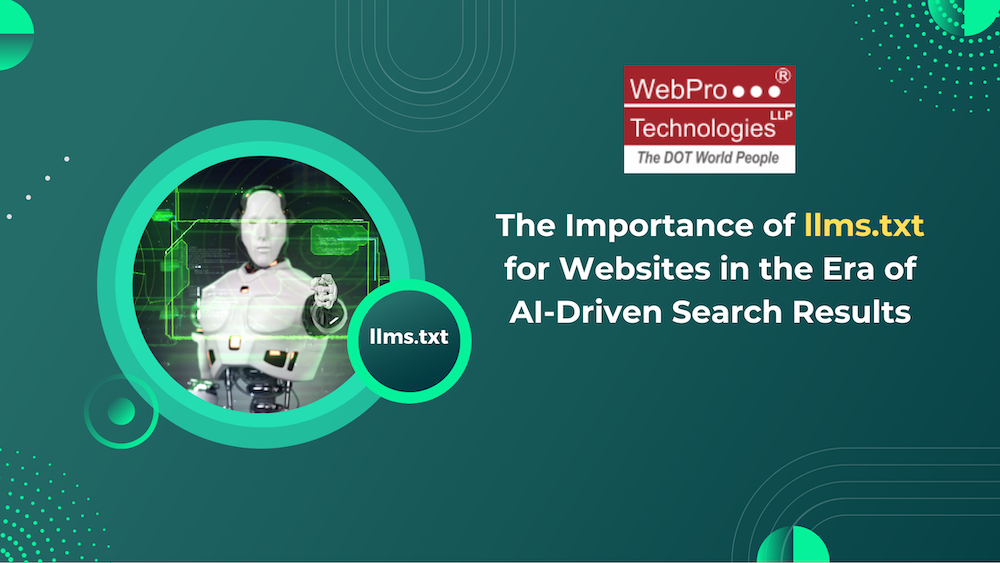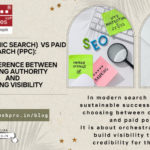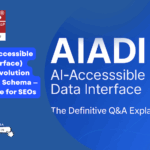As AI-driven search results and large language models (LLMs) increasingly shape the digital landscape, website owners, SEO professionals, and content creators must adapt to ensure visibility, control, and relevance in this new paradigm. One of the emerging solutions to help webmasters manage how AI models interact with their content is the llms.txt file. Inspired by the well-known robots.txt, this new protocol is poised to play a crucial role in defining the relationship between website content and AI-powered systems.
What Is llms.txt and Why Does It Matter?
What Is llms.txt?
llms.txt is a proposed mechanism for webmasters to communicate with large language models about how their content should be accessed, used, and incorporated into AI-generated results. While AI models have traditionally relied on vast amounts of publicly available data to improve their responses, website owners now have a tool to indicate their preferences explicitly.
Just as robots.txt helps search engines understand crawling preferences, llms.txt aims to provide directives to AI-driven models on whether and how they can scrape, use, or summarize web content.
Why Is llms.txt Important?
AI-driven search results and chatbot responses increasingly replace traditional search experiences. Users may no longer need to click on individual websites if an AI-generated snippet provides a comprehensive answer. This shift creates challenges for content creators, businesses, and publishers who rely on website visits for monetization, branding, and engagement.
By implementing llms.txt, website owners can:
- Control Content Usage: Specify which parts of their site AI models can or cannot use.
- Protect Intellectual Property: Prevent unauthorized summarization or repurposing of original content.
- Ensure Proper Attribution: Set guidelines for citation and credit when AI-generated answers reference website content.
- Maintain Competitive Edge: Avoid unrestricted AI access to proprietary data or strategic insights.
How AI-Driven Search Changes Content Visibility
The Rise of AI-Powered Search Engines
With tools like Google’s Search Generative Experience (SGE) and AI-driven chatbots (e.g., ChatGPT, Gemini, and Bing AI) offering direct answers instead of displaying a list of links, traditional search traffic patterns are shifting. Websites that previously relied on organic search ranking must now ensure that AI-generated answers fairly represent and credit their content.
Challenges for Website Owners
- Loss of Click-Through Traffic: Users may receive direct answers from AI models without visiting the source website.
- Misrepresentation of Information: AI models might summarize content inaccurately or out of context.
- Monetization Impact: Fewer page visits could reduce ad revenue and conversion opportunities.
- Data Scraping Concerns: Unauthorized AI training on proprietary or sensitive data.
The introduction of llms.txt provides website owners with an essential tool to address these concerns and define clear boundaries for AI access.
Implementing llms.txt: Best Practices and Use Cases
How to Set Up an llms.txt File
A typical llms.txt file follows a simple text-based format, similar to robots.txt. Here’s a basic example:
User-agent: OpenAI-GPT
Disallow: /private/
Allow: /public/
User-agent: Google-LLM
Disallow: /proprietary-content/
Allow: /blog/
User-agent: *
Disallow: /In this example:
- OpenAI's GPT models are blocked from accessing the
/private/directory but can access/public/. - Google's AI models are restricted from scraping
/proprietary-content/but can access/blog/. - A wildcard (
*) prevents all other AI models from accessing any site content.
Best Practices for Using llms.txt
- Be Strategic: Decide which parts of your website you want AI models to access and which should be restricted.
- Regular Updates: As AI models evolve, revisit and refine your
llms.txtfile periodically. - Combine with Robots.txt: Use both files strategically to manage web crawlers and AI models simultaneously.
- Monitor AI Attribution: Track how AI-generated responses reference your content and adjust settings accordingly.
Use Cases for Different Website Types
1. News Websites & Publishers
- Allow AI models to summarize publicly available news articles while ensuring proper attribution.
- Restrict paywalled or exclusive content to prevent unauthorized summarization.
2. E-Commerce Websites
- Prevent AI models from accessing dynamic pricing pages or proprietary product descriptions.
- Allow AI-generated summaries for product guides or FAQs to enhance discovery.
3. SaaS & B2B Websites
- Restrict AI models from scraping customer testimonials, internal documentation, or pricing models.
- Permit indexing of blog content to increase visibility in AI-driven search experiences.
4. Educational & Research Websites
- Ensure that AI models cite sources properly when using research materials.
- Limit access to premium courses or gated educational content.
The Future of Content Governance in AI Search
Industry Adoption and Compliance
While llms.txt is an emerging standard, its widespread adoption will depend on:
- AI Companies’ Willingness to Comply: Organizations like OpenAI, Google, and Meta must respect
llms.txtdirectives. - Legal and Ethical Considerations: Regulatory frameworks might evolve to enforce AI content governance.
- Community Involvement: SEO professionals, content creators, and digital marketers need to advocate for responsible AI usage.
Beyond llms.txt: Additional Measures for Website Owners
- Watermarking AI-Restricted Content: Implement invisible watermarks to detect unauthorized AI use.
- AI-Specific Analytics: Use tools that track AI-generated traffic and content interactions.
- Legal Protections: Consider copyrighting high-value content to reinforce legal standing against unauthorized AI training.
Taking Control of AI Content Access
In an era where AI-driven search results dominate user interactions, webmasters and content creators need proactive measures to maintain control over their content. llms.txt offers a practical solution to regulate AI access, ensuring fair attribution, protecting proprietary data, and adapting to the evolving digital ecosystem.
While AI models enhance information accessibility, they should not come at the expense of original content creators’ rights and business interests. By implementing llms.txt and staying informed about AI policies, website owners can navigate this new landscape effectively while safeguarding their online assets.
As AI search evolves, staying ahead of emerging trends and tools like llms.txt will be essential for anyone invested in digital visibility and content strategy. Now is the time for website owners to take action, set their AI interaction preferences, and ensure their content is leveraged ethically in the AI-driven web.







